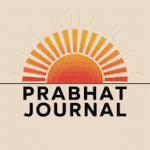Vanraj Andekar pune news – Vanraj Andekar, a former corporator associated with Ajit Pawar’s NCP, was killed in Pune’s Nana Peth area on Sunday (September 1). He was reportedly shot at and attacked with a koyta (a type of knife) in a suspected case of gang rivalry. The assailant fired five to six rounds before fleeing the scene.
The incident caused panic, especially with a power supply disruption in the Doke Talim area just before the shooting. Crime branch officers promptly arrived at the scene. Preliminary reports suggest that the shooting resulted from personal enmity and a dispute over dominance, as Andekar’s gang wields significant influence in Nana Peth. Vanraj Andekar happened to be the son of the notorious gangster, Bandu Andekar.

Nationalist Congress Party (NCP): A Progressive Political Force
The Nationalist Congress Party (NCP) is a significant political entity in India, known for its commitment to democracy, secularism, and social justice. Founded in 1999 by prominent leaders, the NCP has played a crucial role in Maharashtra politics and has been recognized as a state party in Nagaland and Kerala. In this comprehensive overview, we’ll explore the party’s formation, ideology, political alliances, leadership, and performance.
Formation and Founders
The NCP was formally established on June 10, 1999, in New Delhi by three former members of the Indian National Congress (Congress Party):
Sharad Pawar
P. A. Sangma
Tariq Anwar
These leaders came together after being expelled from the Indian National Congress on May 20, 1999. Their expulsion stemmed from their dispute over the right of Italian-born Sonia Gandhi to lead the party. The NCP was born out of this disagreement, and it quickly emerged as a significant political force.
Ideology and Position(Vanraj Andekar pune news)
The NCP describes itself as a “millennial party with a modern and progressive orientation.” Let’s break down its core ideology:
Liberal Conservatism
The NCP supports individual freedoms, limited government intervention, and free markets.
It advocates for economic reforms and privatization.
Economic Liberalism
The party believes in market-oriented policies and economic liberalization.
It aims to foster growth and development through private enterprise.
Indian Nationalism(Vanraj Andekar pune news)
The NCP emphasizes national unity, pride, and sovereignty.
It upholds the idea of India as a diverse yet united nation.
Holistic Democracy
The party is committed to inclusive governance and participation.
It values democratic institutions and processes.
Gandhian Secularism
The NCP adheres to secular values, respecting all religions.
It promotes harmony and tolerance.
Federalism-Based National Unity(Vanraj Andekar pune news)
The party supports a strong federal structure for India.
It recognizes the importance of regional diversity while maintaining national unity.
Political Alliances
The NCP has been part of various political alliances, adapting to changing political landscapes:
United Progressive Alliance (UPA):
The NCP joined the UPA to form the government of Maharashtra in October 1999.
It also played a crucial role in the national government led by Manmohan Singh in 2004.
National Democratic Alliance and North-East Democratic Alliance:
The party has occasionally aligned with the NDA and NEDA.
Mahayuti (Maharashtra):
In Maharashtra, the NCP has been part of the Mahayuti alliance.
Leadership
Sharad Pawar has been a prominent leader of the NCP.
The party has held significant influence in the state of Maharashtra and has been recognized as a state party in Nagaland and Kerala.
Party Performance and Impact
The NCP has played a crucial role in Maharashtra politics, particularly in rural areas. Its focus on social justice, development, and regional representation has resonated with voters. Despite occasional shifts in alliances, the party remains relevant and influential.
The Nationalist Congress Party stands as a progressive force, advocating for a balanced blend of economic reforms, nationalism, and inclusive governance. Its journey from formation to its current position reflects its resilience and commitment to India’s democratic fabric.

